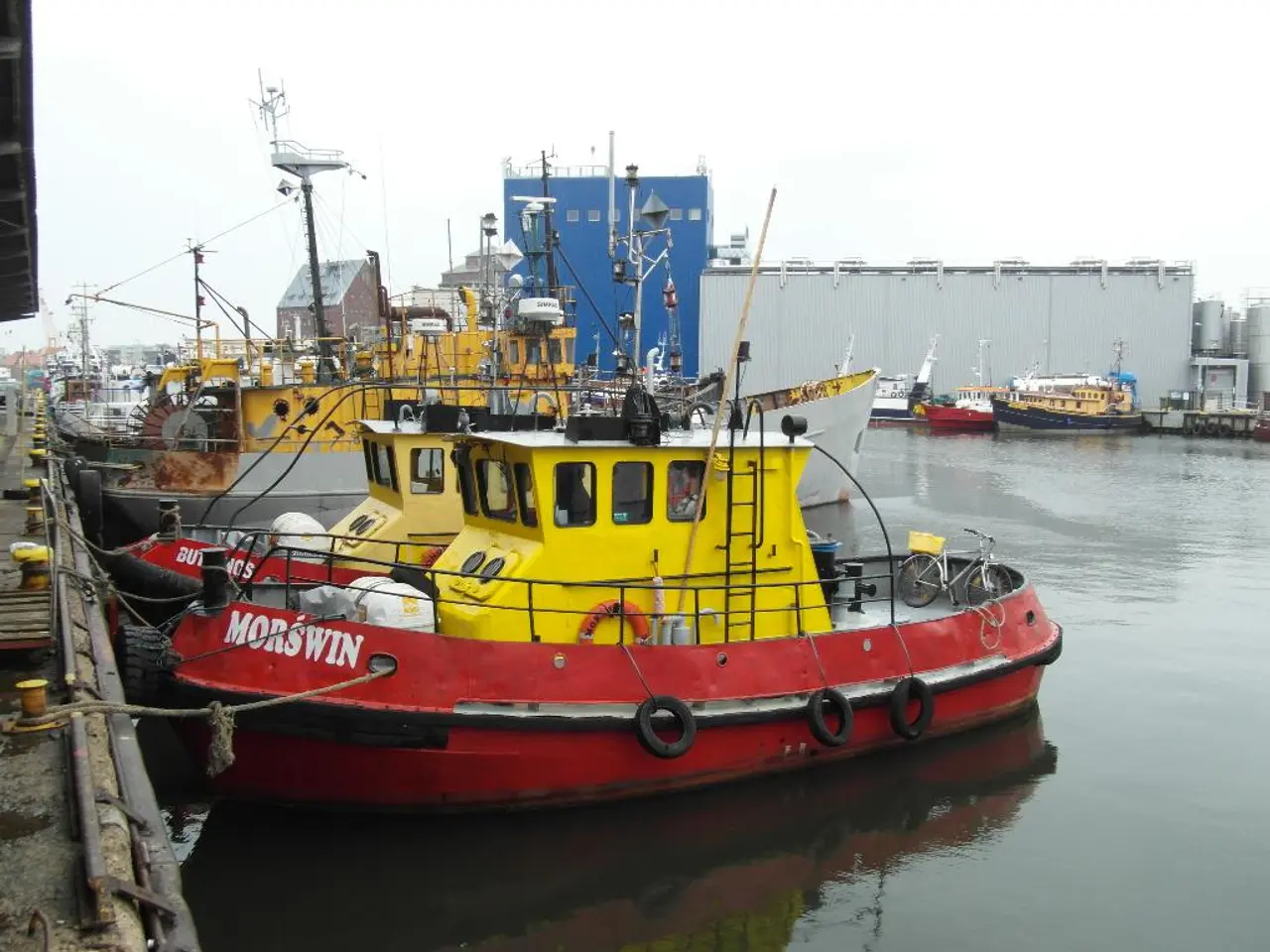Protesters infiltrate Lake Constance, expressing their concerns for environmental preservation.
In a recent study, researchers from the University of Constance have revealed that the condition of German lakes, including Lake Constance, is in a state of concern, primarily due to human activities. The study, which has caused a stir, suggests that clearly defined driving routes should be implemented on Lake Constance, and motorized boats should be restricted in sensitive protected zones.
Project leader Frank Peeters, from the University of Constance, advocates for the removal of motorized boats from these protected zones based on the study results. He also wishes for clearly defined driving routes on Lake Constance. Peeters further demands a restriction of the permitted driving speed around these zones to minimise the environmental impact.
The study findings indicate that people's habits are largely responsible for the poor condition of German lakes. Motorized water sports contribute to the damage of sensitive shoreline areas, with so-called ship waves being a factor in the destruction of local animal and plant life. Even when motorized vehicles are stationary, pollutants from their coatings enter the water.
The study results suggest potential environmental consequences of motorized water sports, such as water pollution, noise pollution, and habitat disruption. To mitigate these impacts, environmentalists propose a combination of regulatory measures, technological innovation, and public education.
Regulation and management could involve implementing strict regulations on the use of motorized watercraft, such as limiting speed or restricting access to sensitive areas. Alternative technologies, like electric or more environmentally friendly motor technologies, could reduce pollution and noise. Educating the public about the environmental impacts of motorized water sports can encourage responsible behavior. Establishing protected zones or nature reserves where motorized activities are restricted can help preserve biodiversity and ecosystem health.
Environmentalists believe that water tourism needs clear limits to protect the environment on Lake Constance. They agree that motorized boats must disappear from the sensitive protected zones of the lake. With approximately 112 watercraft per square kilometer on Lake Constance, if all boats were moored at the shore, there would be one every five meters. This high density of boats underscores the need for action to protect the lake's environment.
As the study results become more widely known, it is hoped that steps will be taken to address the environmental issues related to motorized water sports on Lake Constance and other German lakes.
Other scientific research has highlighted the importance of health-and-wellness for the environment, especially in the context of fitness-and-exercise activities like motorized water sports on lakes. The overuse and mismanagement of these activities can lead to climate-change and environmental-science concerns, such as water pollution, noise pollution, and habitat disruption. To address these issues, sports enthusiasts and environmentalists are advocating for regulatory measures, technological innovations, and public education to strike a balance between enjoyment and sustainability.




